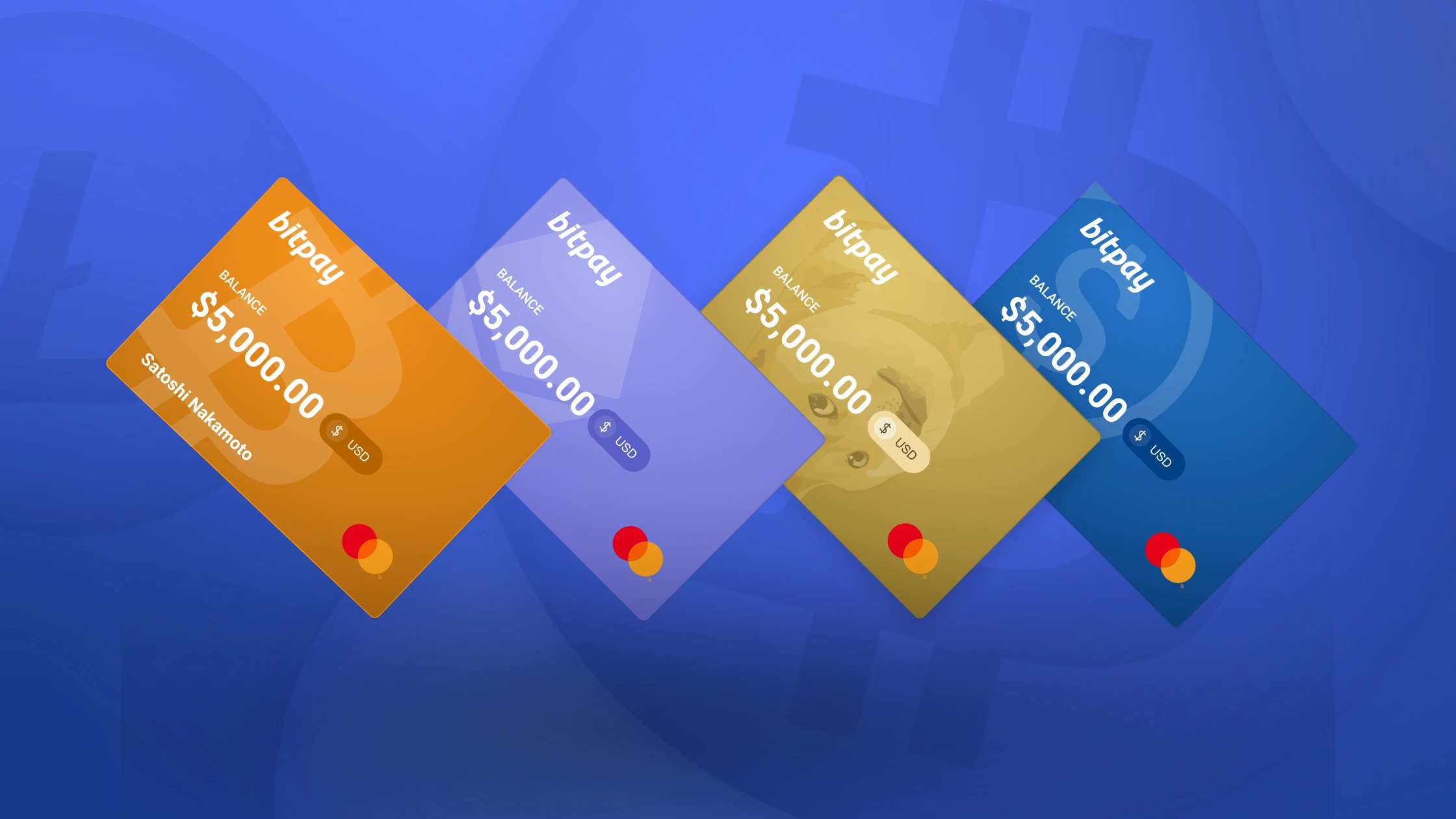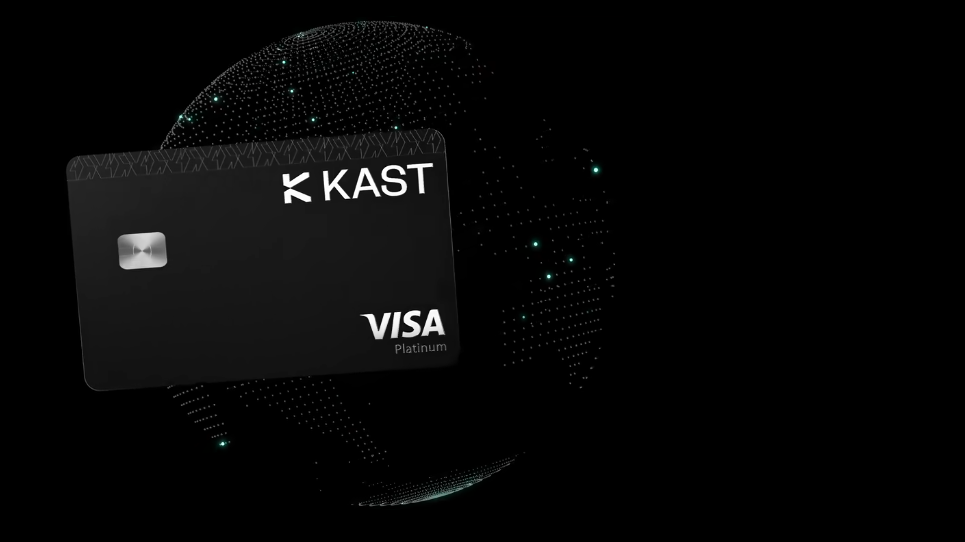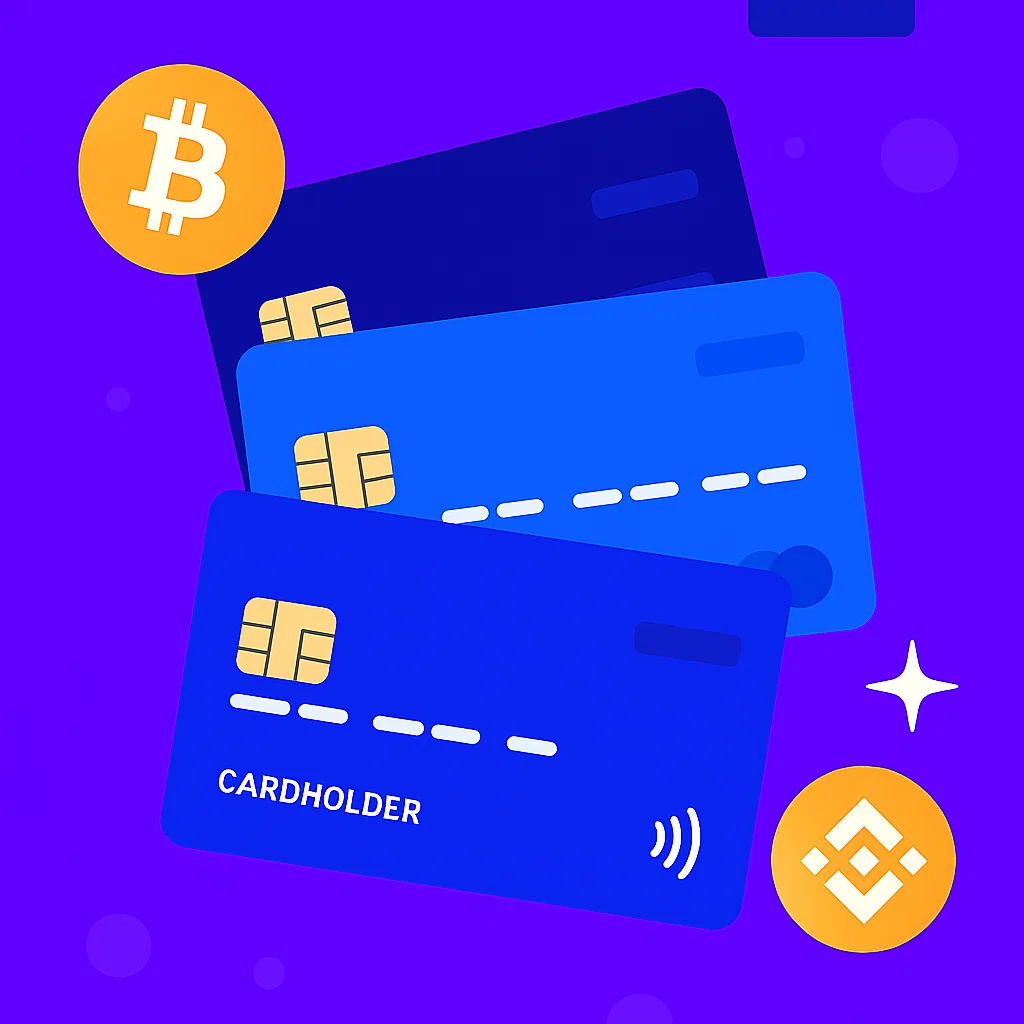Cryptocurrencies can be risky investments. Please do your own research before investing. Our content may contain affiliate links. Read our disclosures:
Cryptocurrency isn’t just about trading anymore—it’s becoming part of everyday purchases.
One of the clearest examples of this shift is the rise of crypto debit cards, which work much like a normal debit card but connect directly to your digital assets. These cards allow you to spend your Bitcoin, Ethereum, stablecoins, or other tokens just like cash.
At checkout, your crypto is instantly converted into local currency and processed through trusted networks like Visa or Mastercard.
Whether you’re buying coffee, booking a flight, or withdrawing cash at an ATM, crypto debit cards bridge the gap between digital assets and the traditional financial system.
In 2025, the market is more competitive than ever.
Established players like Crypto.com, Coinbase, and Wirex continue to refine their offerings, while new challengers such as COCA and Gnosis Pay are pushing non-custodial solutions and even stablecoin-only options.
At the same time, regulatory changes have reshaped the landscape—some providers, like Binance, have scaled back in key regions, while U.S. and EU users now face different sets of options.
For beginners, a crypto debit card offers a simple way to use digital assets without needing constant conversions.
For enthusiasts, the appeal lies in cashback rewards, subscription perks, and travel benefits that rival or surpass traditional debit cards. But with differences in fees, supported cryptocurrencies, and regional availability, choosing the right card can be tricky.
This guide explores the best crypto debit cards in 2025, comparing their features, fees, and perks. You’ll find detailed reviews, a quick comparison table, and practical tips on what to look for—so you can pick the card that fits your lifestyle and crypto strategy.
Best Crypto Debit Cards in 2025
 Best for: Flexible crypto-collateral loans
Best for: Flexible crypto-collateral loans
Nebeus
Nebeus blends lending, borrowing, and crypto services in one. Users can take out insured crypto-collateral loans, access fiat instantly, and earn passive income. It also provides a crypto Mastercard for everyday spending.
Pros & Cons
Pros
- Borrow up to 80% LTV
- Insurance on crypto collateral
- Access to a crypto Mastercard
Cons
- LTV lower for stablecoins
- Earning products less varied than competitors
 Best for: Beginner-friendly multi-asset platform
Best for: Beginner-friendly multi-asset platform
Uphold
Uphold makes it simple to buy, sell, and spend crypto alongside other assets like stocks and metals. Its debit card supports multi-asset payments and offers cashback in both fiat and crypto, making it a flexible option for everyday users.
Pros & Cons
Pros
- Supports crypto, stocks, and metals in one account
- Cashback on debit card spending
- Beginner-friendly interface and mobile app
Cons
- Limited advanced trading features
- Cashback rewards vary by region
 Best for: EU/UK users wanting insured crypto credit
Best for: EU/UK users wanting insured crypto credit
Nexo
The Nexo Card offers dual debit/credit modes, letting you spend or borrow against crypto without selling. Earn up to 2% cashback in BTC/NEXO, keep assets earning yield, and enjoy zero annual/FX fees.
Pros & Cons
Pros
- Dual mode: debit or credit against crypto
- Up to 2% cashback in BTC or NEXO
- No annual or FX fees
Cons
- Available only in EU & UK (not US)
- Higher rewards tied to loyalty tiers
 Best for: Beginners in US/EU
Best for: Beginners in US/EU
Coinbase
Coinbase Card makes crypto spending simple, with instant conversion to fiat. It’s beginner-friendly, offers 1–4% rotating crypto rewards, and integrates seamlessly with the Coinbase exchange.
Pros & Cons
Pros
- Beginner-friendly; spend directly from Coinbase wallet
- Rotating crypto rewards (~1–4%)
- Apple/Google Pay supported
Cons
- Spread/transaction fees (~2–3%) on spends
- Fewer lifestyle perks than Crypto.com Visa
Top Crypto Debit Cards in 2025 (In-Depth Review)
1. Nebeus – Flexible Crypto-Collateral Loans

Nebeus is more than just another crypto platform — it’s a hybrid service that blends digital assets with traditional banking.
With Nebeus, you can borrow against your cryptocurrency holdings, access a European IBAN or UK money account, and spend directly using a crypto debit card that works much like a normal debit card. For everyday purchases, the platform converts your assets into fiat currency instantly, so you can pay at any merchant that accepts Visa or Mastercard.
One of Nebeus’s standout features is its flexible credit line.
Instead of selling your crypto, you can use it as collateral to borrow funds, giving you liquidity without triggering a taxable event such as capital gains tax. This makes it attractive to long-term holders who want to unlock value without losing exposure to Bitcoin, Ethereum, or stablecoins.
On the security side, Nebeus takes a cautious approach: around 98% of assets are held in cold storage, with additional security measures like insurance coverage on collateralized loans.
Users benefit from transparent fees, and compared to some competitors, Nebeus has fewer hidden costs, making it an appealing option for those looking for low fees and reliability.
For European residents, Nebeus bridges the gap between crypto and traditional banking by offering services that feel as familiar as using traditional debit cards, while still delivering the benefits of digital assets.
Whether you want to borrow, earn rewards, or simply make everyday purchases, Nebeus provides a practical and regulated entry point into the world of cryptocurrency finance.
Pros
Cons
2. Uphold – Beginner-Friendly Multi-Asset Platform

Uphold stands out as a beginner-friendly, multi-asset platform that goes beyond cryptocurrency.
In addition to supporting over 300 digital assets, users can trade between crypto, fiat currency, and even commodities like gold or silver. This makes it one of the few services where you can connect a crypto debit card to a wide range of holdings, not just Bitcoin or Ethereum.
The Uphold Card is especially appealing for everyday purchases.
It works like a normal debit card, but lets you choose which balance to spend from—crypto, dollars, or even metals. Purchases are processed through trusted networks such as Visa and Mastercard, so you can use the card at millions of merchants worldwide without worrying about acceptance.
For users who want flexibility, Uphold also provides transparent conversion rates and relatively low fees compared to some competitors. Cashback is offered on card spending, and unlike more complex programs, there’s no need to lock up tokens or pass credit checks to start earning rewards.
That said, users should still be aware of taxable events: in many jurisdictions, every time you use your card to pay with crypto, it may count as a sale for capital gains tax purposes.
This is where Uphold’s simple interface helps, as it makes tracking transactions and exports for tax filing straightforward.
Security measures are another strength. Uphold is regulated in both the U.S. and the European Economic Area, providing extra peace of mind for users who want reliability along with convenience.
The card is a natural choice for those who want to bridge traditional finance and the crypto world without juggling multiple apps or exchanges.
Pros
Cons
3. Nexo – Dual Debit/Credit Mode with Insurance (EU/UK)

The Nexo Card is designed for users in the EU and UK who want maximum flexibility when spending crypto. Unlike many competitors, it operates in two distinct ways:
- Debit mode, where you spend directly from your crypto balance like a normal debit card, and
- Credit mode, where you use your crypto as collateral to open a revolving credit line without selling your assets.
This dual system is especially powerful for avoiding unnecessary taxable events. For example, instead of selling Bitcoin and realizing a capital gains tax, you can borrow against it while still keeping your exposure to the market.
Rewards are another strong feature. The Nexo Card offers up to 2% cashback in either Bitcoin or NEXO tokens.
Since this is earned automatically on everyday purchases, users can passively grow their holdings while spending. There are no annual fees, and Nexo also waives foreign exchange fees, which makes the card attractive for frequent travelers.
Security is also a priority.
The platform applies strict security measures, including insurance-backed custody for funds, cold storage for most assets, and real-time fraud monitoring. Purchases run over Visa’s global network, ensuring acceptance almost anywhere that supports card payments.
Where Nexo really shines is in cost efficiency.
Unlike some competitors that hide high spreads or add multiple conversion steps, Nexo markets its low fees clearly.
This transparency, combined with its regulated European presence, makes it one of the best options for crypto holders who want both convenience and trust.
Pros
Cons
4. Coinbase Card – Beginner-Friendly for US/EU Users

The Coinbase Card is one of the easiest ways for beginners to start spending crypto in daily life.
It works much like a normal debit card, but instead of drawing funds from a bank account, it connects directly to your Coinbase wallet. You can pay with Bitcoin, Ethereum, stablecoins, or other digital assets, and they’re converted instantly into fiat currency at checkout.
Available in the U.S., U.K., and much of the European Economic Area, the Coinbase Card integrates with Visa’s global network, so it’s accepted at millions of merchants worldwide. Whether you’re making everyday purchases like groceries or withdrawing cash from an ATM, it functions just like a traditional card.
In terms of rewards, Coinbase offers 1–4% cashback depending on which crypto you select.
Unlike some providers, there’s no need to stake tokens or pass credit checks to qualify—making it one of the most straightforward cards for beginners. Rewards are flexible too: you can choose stablecoins for predictability or riskier coins if you want higher growth potential.
Fees are something to watch, however. Coinbase charges a transaction fee of around 2.5%, which can eat into rewards if you’re a frequent spender.
While there are no annual fees, conversion costs make it less competitive compared to cards with low fees or fee-free FX.
On the security side, Coinbase uses standard security measures such as two-factor authentication, instant freeze, and fraud monitoring. Since it’s a fully custodial solution, Coinbase holds your assets until you spend them—simple for newcomers, though less appealing to users who prefer non-custodial control.
Overall, the Coinbase Card is best for U.S. and EU residents who want a reliable, beginner-friendly way to turn crypto into everyday spending power without complicated staking requirements or loyalty tiers.
Pros
Cons
5. Crypto.com Visa Card – Best for Perks & Cashback

The Crypto.com Visa Card is one of the most popular crypto debit cards worldwide, thanks to its tiered reward structure tied to CRO staking.
Cashback starts at 1% and can reach up to 8% for higher tiers, with extra perks like Spotify/Netflix rebates and airport lounge access.
It runs on the Visa network, so it’s accepted globally for everyday purchases and ATM withdrawals, though free limits and fees depend on your tier.
There are no annual fees, but the best perks require locking CRO tokens—something beginners may find restrictive due to volatility.
Security measures like 2FA, instant freeze, and real-time alerts are built into the app. For frequent travelers or users chasing maximum perks, this card remains a strong choice in 2025.
Pros
Cons
6. Binance Card – High Cashback, Regionally Restricted

The Binance Card once stood out for offering up to 8% cashback in BNB, making it one of the most rewarding crypto debit cards for everyday purchases.
Transactions run on the Visa network, so spending at global merchants felt seamless.
However, in 2025, the card faces regional restrictions. Binance has scaled back operations in parts of the EU and UK due to regulatory pressure, limiting availability.
While rewards remain strong for eligible users, the uncertainty makes it less reliable compared to other providers.
Pros
Cons
7. Wirex Card – Wide Coverage, Everyday Spending

The Wirex Card is designed for users who want flexibility and global reach.
It supports a broad range of cryptocurrencies and fiat currency balances, making it ideal for everyday purchases no matter where you are. With its “Cryptoback” program, users can earn up to 8% in WXT tokens on spending.
Running on the Visa network, the Wirex Card is accepted at millions of merchants worldwide.
One of its strengths is low fees when spending directly from crypto, with no hidden conversion charges.
It also integrates with a clean mobile app for managing accounts, tracking rewards, and setting spending limits.
The main drawback is that rewards are tied to the WXT token, and benefits vary by region.
Some users also note that ATM withdrawals and higher usage levels can trigger additional fees.
Pros
Cons
8. BitPay Card – U.S.-Focused with Partner Offers

The BitPay Card is one of the leading crypto debit cards for U.S. residents.
It connects directly to the BitPay wallet, allowing users to convert Bitcoin, Ethereum, and stablecoins into dollars for everyday purchases. Since it runs on the Mastercard network, the card is accepted almost anywhere in the U.S., both online and in stores.
One of its strengths is integration with partner cashback offers, giving users rewards when shopping at select retailers.
There are also no annual fees, which makes it simple and accessible compared to cards with staking or tiered requirements.
The downsides are fees for ATM withdrawals and certain top-ups, plus the fact that it’s limited to the U.S. only. Still, for Americans looking for a straightforward way to spend crypto like cash, BitPay is one of the best options.
Pros
Cons
9. Bybit Card – Trading-Linked Rewards & Auto-Savings

The Bybit Card is aimed at users who are already active on the Bybit exchange and want to extend that experience into real-world spending.
It allows you to use your crypto balance for everyday purchases, with instant conversion into fiat currency through the Mastercard network.
What makes the card different is its integration with Bybit’s ecosystem.
Users can benefit from trading-linked rewards, exclusive discounts, and an auto-savings feature that automatically allocates part of your balance to earn interest.
For frequent traders, this creates a seamless loop between investing and spending.
However, availability is still limited by region, and the most attractive benefits often depend on your trading volume or loyalty tier. Withdrawal fees and limits also vary depending on location.
Pros
Cons
10. KAST Crypto Card - Built for Accesibility

The KAST Crypto Card targets global crypto users seeking instant, premium debit access to spend stablecoins like USDC/USDT.
It stands out with tiered metal cards (plastic to 24k gold), high cashback rewards, and no-borders setup via smartphone—no bureaucracy or delays.
Virtual cards activate instantly upon signup (physical ships fast), addable to Apple/Google Pay for seamless payments worldwide.
Powered by stablecoins like USDC, USDT, and PYUSD for stability, it converts stables to fiat at checkout, accepted everywhere Visa works (grocery, Uber, etc.).
Security leverages Visa network, custodial stables (funds held till spend)—simple for everyday off-ramping.
Best for Solana enthusiasts/global travelers wanting premium flex, high rewards, and instant stablecoin spending without fiat banks.
Pros
- Instant virtual card + fast physical (metal options)
- 2-8% KAST points cashback + SOL staking boosts
- USDC/USDT stablecoin focus—global, no borders
- Apple/Google Pay + Visa everywhere
Cons
- Rewards tied to seasonal campaigns/SOL staking
- Limited to Solana ecosystem stables
Key Factors to Consider Before Choosing a Card
1. Fees
Crypto debit cards often look attractive until you check the fine print.
Pay attention to transaction fees, foreign exchange (FX) spreads, and ATM withdrawal charges.
Some cards also come with annual or monthly fees or hidden costs after you exceed free limits. Always calculate the “real” cost of spending before committing.
2. Supported Cryptocurrencies & Stablecoin Options
Not every card supports the same assets.
While most cover BTC, ETH, and USDC, others may restrict you to a smaller set.
If you plan to use stablecoins like USDT or DAI for predictable spending, make sure the card includes them. The wider the support, the more flexibility you’ll have.
3. Rewards & Perks
Rewards can make or break a card’s value. Look for cashback programs (ranging from 1% to 8% depending on the provider), as well as staking incentives or subscription perks like Netflix and Spotify rebates.
Some cards also offer airport lounge access or travel benefits for higher-tier users. Compare these carefully, since they vary by card and loyalty program.
4. Usability
A sleek mobile app and smooth integration with Apple Pay or Google Pay can make daily use much easier.
Also, check spending limits, ease of top-ups, and whether the platform supports virtual cards for online purchases.
Usability is especially important for beginners who want a card that just works.
5. Global Acceptance & Regional Restrictions
Most crypto debit cards run on Visa or Mastercard, meaning they’re accepted globally.
But availability of the card itself depends on where you live.
For example, Binance Card has been restricted in parts of Europe, while Nexo Card is only available in EU/UK. Always check regional coverage before applying.
6. Security Features
Look for cards with two-factor authentication (2FA), instant card freeze, and real-time transaction alerts. Another factor is whether the provider uses custodial storage (they hold your assets) or non-custodial solutions (you control your keys).
Security should be a dealbreaker, especially if you’re keeping large balances on the platform.
7. Spending & Withdrawal Limits
Daily and monthly limits vary widely. Some cards allow unlimited spending, while others cap ATM withdrawals or charge higher fees after a certain threshold.
Check both the free limits and the paid tiers, so you know exactly how much flexibility you’ll have.
Pros and Cons of Using Crypto Debit Cards
Pros
Cons
Trends in 2025: What’s Changing in the Crypto Debit Card Market

1. Decline or Scaling Back of Some Providers
Several well-known crypto debit card issuers are retreating or pausing operations in certain regions.
A notable example is Binance: due to regulatory pressures and compliance challenges, the Binance Card service has become restricted (or discontinued) in many European and UK markets.
Cards that once promised global reach are now forced to localize or withdraw, especially where licensing under new regulations (like MiCA in the EU) is stricter.
This means users in some countries have fewer options, or must rely on cards with limited functionality or legacy support.
2. Rise of Stablecoin-Only or Stablecoin-Linked Cards
There is growing interest in debit cards that are stablecoin-linked or stablecoin-only.
These cards allow you to hold stable assets such as USDC or USDT and spend directly from them, reducing exposure to volatility.
Visa and Bridge have recently launched stablecoin-linked Visa cards in Latin America, with plans to expand into other regions.
This reflects a trend toward predictability and lower risk for everyday spending.
3. Growth of Self-Custodial and On-Chain Solutions
More card projects are experimenting with non-custodial or on-chain spending models.
These solutions let you retain control of your private keys and spend directly from your wallet, reducing reliance on custodial platforms.
Providers like Gnosis Pay and COCA are examples, catering to users who prioritize control and decentralization over convenience.
4. Increasing Regulatory Oversight in the U.S. and EU
Both the United States and the European Union are tightening rules for crypto assets.
The EU’s Markets in Crypto-Assets Regulation (MiCA) introduces stricter licensing and reserve requirements for service providers.
In the U.S., recent laws are pushing for stronger oversight of stablecoin issuers, including mandatory audits and one-to-one reserves.
This means card providers must adapt business models and compliance practices, which may affect which regions they can serve and how they market their products.
Frequently Asked Questions
Do cryptocurrency debit cards work like normal debit cards at every store?
Yes. Cryptocurrency debit cards function almost exactly like a normal debit card. When you swipe or tap, your crypto is converted instantly into local currency and processed through Visa or Mastercard, meaning they’re widely accepted at most stores, restaurants, and online retailers. The only real limitation is whether the card provider supports your region.
How secure are crypto debit cards compared to traditional debit cards?
Most major providers implement strong security measures like 2FA, instant card freeze, and fraud alerts. Some also insure user funds or keep assets in cold storage. Still, because custodial platforms hold your assets, you’re trusting them to keep your money secure. By contrast, traditional debit cards rely on regulated banks, so the choice often comes down to whether you prioritize convenience or self-custody.
Can I transfer money from my crypto debit card to another account?
Yes, many platforms allow you to transfer money from your card balance into a linked bank account or even between wallets within the same app. This is usually handled through a direct connection between your crypto balance and fiat options like dollars or euros. However, transfers sometimes carry extra fees, so it’s best to check before proceeding.
What happens during the verification process when applying for a crypto debit card?
When signing up, you’ll need to complete verification, usually by submitting identification documents and sometimes proof of address. This step is often quick, but depending on the provider, you may find yourself waiting a few hours to a couple of days. Once the process is completed, your application status typically changes to “verification successful,” and you can start using the card right away.
Are crypto debit cards a good option for making purchases in dollars or other fiat currency?
Yes, they’re ideal for spending crypto in everyday life. When you use the card, your digital assets are converted into dollars or other fiat currency like euros or pounds. This makes it easy to cover purchases at any merchant, without needing to manually sell your crypto first.
How do I determine the best options when comparing crypto debit cards?
When reviewing cards, consider fees, rewards, security, and availability in your region. Some cards focus on perks like cashback and lounge access, while others highlight benefits like transparent pricing and simple apps. To determine the best options, look at your personal spending habits—whether you want a travel-friendly card, one with high rewards, or the lowest cost for daily transactions.
Is there an easy way to sign up for a crypto debit card without credit checks?
Yes. Many providers market their cards as an easy way to start spending crypto, with no credit checks or long approval process. All you usually need to do is sign up, complete basic identity verification, and load your card. This makes them more accessible than some credit-based products, especially for newcomers.
Conclusion
Crypto debit cards are quickly moving from niche products to everyday tools.
While they work much like a normal debit card, the extra perks—cashback, travel rewards, and crypto-backed credit lines—make them a unique bridge between digital and traditional finance.
Before choosing a provider, take time to verify fees, regional availability, and security features. A little research goes a long way in finding the right fit for your needs.
It’s also smart to keep a simple spending log, especially if you’re in a region where transactions may count as taxable events. Staying organized will save you trouble later.
In the end, the best card is the one that matches your lifestyle—whether that’s low fees, global use, or earning rewards.
With so many options in 2025, there’s never been a better time to connect your crypto to the real world.








